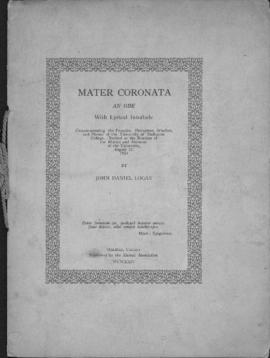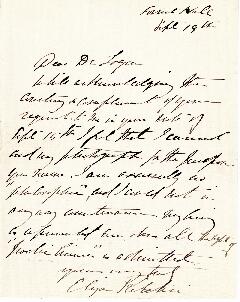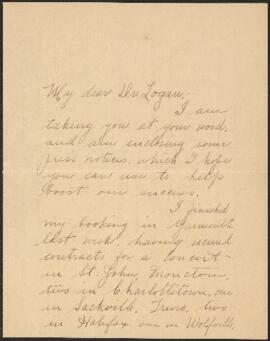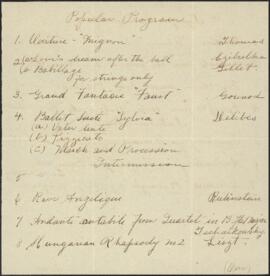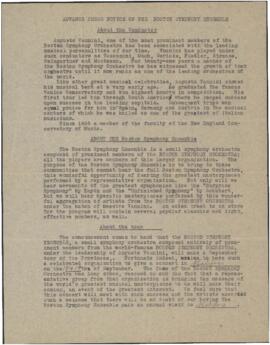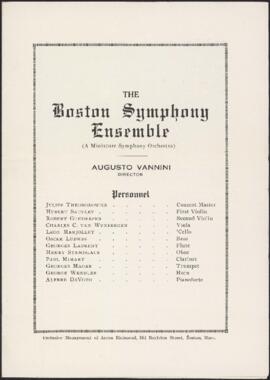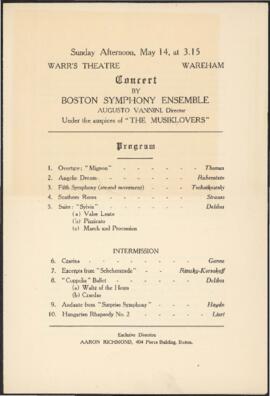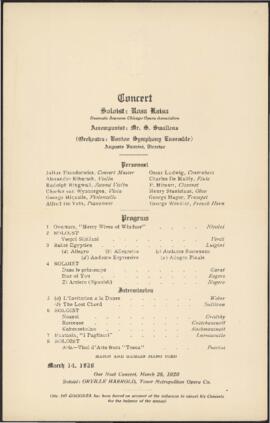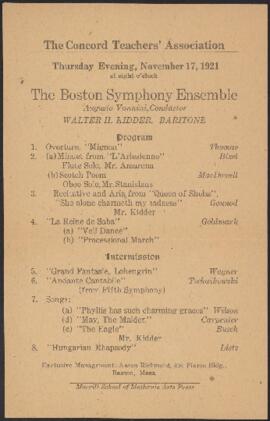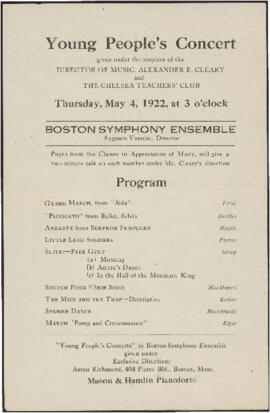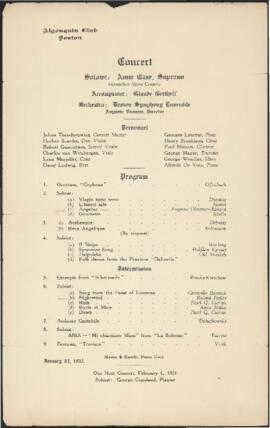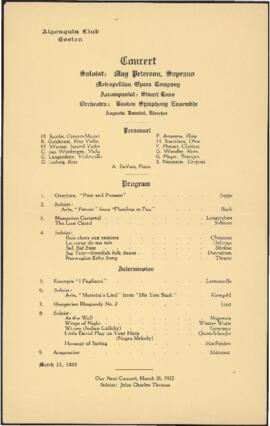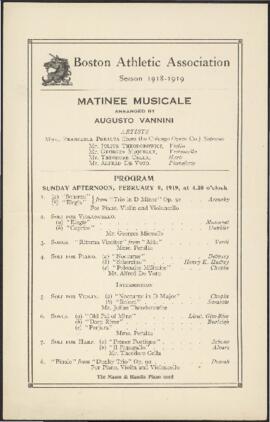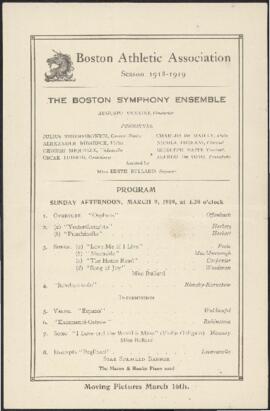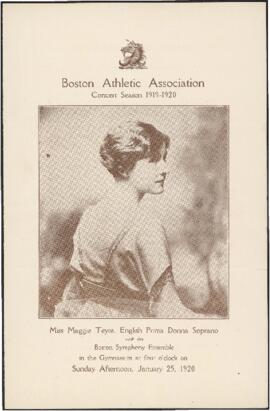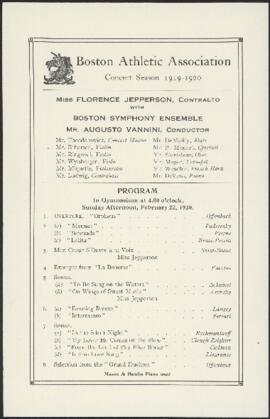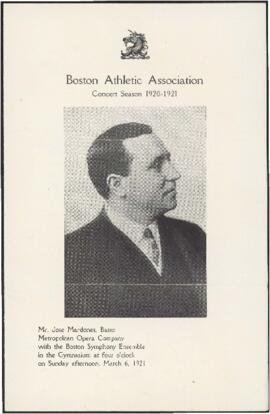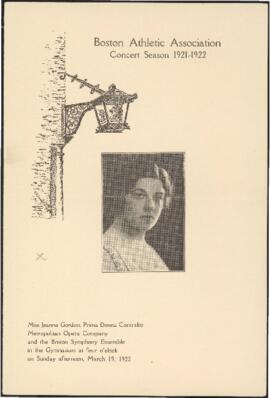Title and statement of responsibility area
Title proper
General material designation
- Textual record
- Graphic material
Parallel title
Other title information
Title statements of responsibility
Title notes
Level of description
Repository
Reference code
Edition area
Edition statement
Edition statement of responsibility
Class of material specific details area
Statement of scale (cartographic)
Statement of projection (cartographic)
Statement of coordinates (cartographic)
Statement of scale (architectural)
Issuing jurisdiction and denomination (philatelic)
Dates of creation area
Date(s)
Physical description area
Physical description
36 photographs
20 prints
4 postcards
Publisher's series area
Title proper of publisher's series
Parallel titles of publisher's series
Other title information of publisher's series
Statement of responsibility relating to publisher's series
Numbering within publisher's series
Note on publisher's series
Archival description area
Name of creator
Biographical history
John Daniel Logan was a writer and professor of poetry, literary and music criticism, and literary history. Born in Antigonish, Nova Scotia on May 2, 1869 to Charles and Elizabeth (Rankin) Logan, he moved with his mother and siblings to Pictou, Nova Scotia in 1876 after the death of his father. He attended Pictou Academy where he developed an affinity for the Gaelic language and started a life-long love of Celtic culture in Canada. He then went to Dalhousie College, where he received a Bachelor of Arts in Philosophy (1893) and a Master of Arts (1894), and Harvard University, where he received his PhD (1896). He remained in academia until 1902, holding several teaching positions in the United States. After 1902, he continued to publish papers and give lectures, predominantly on philosophy.
In 1902, he left his position at the State University of South Dakota to work as an advertising specialist with Siegel, Cooper and Company of Chicago, where he stayed until 1906, when he returned to Canada to take a position with Woods-Norris, Limited of Toronto. Two years later, Logan left advertising to become the first literary and music critic for the Toronto newspaper Sunday World (1908-1910), and then the News (1910-1914). In this role, he supported cultural and artistic endeavours in Canada. At the same time, he began to write for the Canadian Magazine, which he continued to do for the rest of his life. His work as a music and literary critic, however, did not result in much popularity or success, and in 1914, he left Toronto for Montreal in search of work. At this point, he also separated from his wife, Minerva Shepard Bromer of New York (married in 1897).
Logan stayed in Montreal for eighteen months before moving to Halifax in 1915 for a government position. During this time, he also worked part-time as a journalist for the Halifax Morning Chronicle. In 1916, he enlisted in the Army. He was discharged in April 1918 due to an injury and returned to Halifax, where he resumed his work in literary and music journalism. In 1918, he donated his library of Canadian literature to Acadia University (where he had given a series of lectures in 1915) and on May 28, 1918, his positions as "Special Lecturer in Canadian Literature" was formalized by the Board of Governors at Acadia. In Halifax, as in Toronto, he frequently clashed with the literary-intellectual community, and is known for arguing with Archibald MacMechan of Dalhousie University about the teaching of Canadian literature there, and with H.L. Stewart, head of the Philosophy Department at Dalhousie, about his teaching methods.
In 1924, he founded the Colonel William Ernest Thompson Library of Musical Literature in 1924 in memory of his classmate and to support a Faculty or Department of Music at Dalhousie University. In 1925, he was appointed Associate Dominion Archivist for the Maritime Provinces, after persistently campaigning for the position from Prime Minister William Lyon Mackenzie King. He was not happy in Halifax, however, and resigned his position as Archivist to move to Milwaukee, Wisconsin, where he was elected Head of the English Department at Marquette University in 1927. He died there on January 24, 1929 and is buried at the Holy Cross Cemetery in Halifax.
Custodial history
Scope and content
Notes area
Physical condition
Immediate source of acquisition
Arrangement
Language of material
- English


![In Flanders Fields : [manuscript vocal score]](/uploads/r/dalhousie-university-archives/2/9/8/2981007aa92a8143feb097e9b79f9618f14192a96a8c4f7e3c07fa18d71693cd/MS-5-1_2_5_142.jpg)
![The town is decked flags today : [manuscript vocal score]](/uploads/r/dalhousie-university-archives/9/a/c/9ac5012c8f675f6ffffef6aec183c149e1cc6284c52e86e11c5f8eb0f374cdc9/MS-5-1_2_6_access_142.jpg)
![A Nocturne : [manuscript vocal score]](/uploads/r/dalhousie-university-archives/7/6/f/76fa51dc161e2f73a223727beb13a6af3c4e6c6280b43fdb69bddd5d83d10d95/MS-5-1_2_7_access_142.jpg)
![Exiled : a Serbian lament : [manuscript vocal score]](/uploads/r/dalhousie-university-archives/c/b/e/cbe9cb32fd7301c510063926c9ba579fcdc1e63175d635e72b1b38ff11883268/MS-5-1_2_8_access_142.jpg)
![Going West : [manuscript vocal score]](/uploads/r/dalhousie-university-archives/8/9/b/89b92756d27cd4c81d3d8cfcd561b5f273bb0da0b2d64ba7a91a673b9cd9891d/MS-5-1_2_9_access_142.jpg)
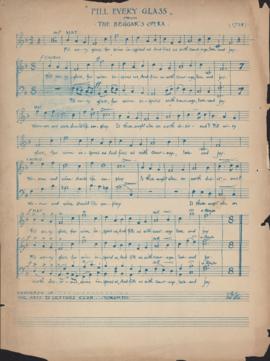
![The Arts and Letters Club Constitution : [choral score]](/uploads/r/dalhousie-university-archives/8/a/f/8af9fd817504101e051f7a4b9edb69de5b3a7bebdc7dcdbb4c7cdae989962cfd/MS-5-1_2_18_access_142.jpg)
![Britain calls : [lyrics]](/uploads/r/dalhousie-university-archives/8/d/d/8dd3380ac6643a67a3c5ead6c0c7bf34d3d9c2cf021b05e032edb40e2f71c9b4/MS-5-1_2_10_access_142.jpg)
![Mother's flag : [sheet music]](/uploads/r/dalhousie-university-archives/5/9/6/596857de1546a350d28b3209af45730c8777c9e33e1a2332193e750ba6a09f40/MS-5-1_2_11_access_142.jpg)
![Father in heaven : a prayer : [sheet music]](/uploads/r/dalhousie-university-archives/6/6/c/66c7b9e1eceb7450be6ec3bd21d97a53ba9f2b1df2c6d63438245361937a9e4c/MS-5-1_2_12_access_142.jpg)
![Come unto me : [sheet music]](/uploads/r/dalhousie-university-archives/4/f/f/4fff1ce3b1d8720d11a91edb2007fb55adf71e734b3e3d158d57674a9a8d0c78/MS-5-1_2_13_access_142.jpg)
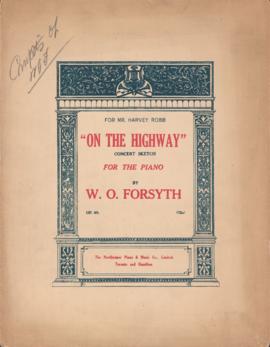
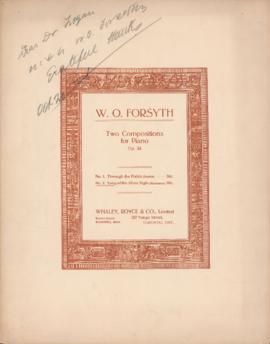
![God be with our boys tonight : [sheet music]](/uploads/r/dalhousie-university-archives/0/2/1/0216bb8fdb6893dbe98dfcca0ddeebd22f962d0fba00f8fda24c595d4ba0ef1d/MS-5-1_2_17_access_142.jpg)
![Lover's meeting : [lyrics]](/uploads/r/dalhousie-university-archives/a/7/8/a7887b9b3517eab8998602de06831987c5359b43d0cba1dd55ee63ab509721c3/MS-5-1_3_57_access_142.jpg)
![God bless our Canada : A national anthem : [choral score]](/uploads/r/dalhousie-university-archives/d/7/f/d7fab1e1659a4c5d207fe5991cb1ccb1a1f3039f247e34d2f7f47d827df134a8/MS-5-1_3_58_access_142.jpg)
![If love were all : [sheet music]](/uploads/r/dalhousie-university-archives/2/c/0/2c0bb5567c89d139a00e5c27f37af279987ce4afabc6523b79153eadb6111f0e/MS-5-1_3_59_access_142.jpg)
![Song of the Maritimes : [sheet music]](/uploads/r/dalhousie-university-archives/3/5/9/359ea720aef7100f4bcf6cf0f7d8404d2db53931cf37359f6fd77d5c4efed4ca/MS-5-1_3_60_access_142.jpg)
![Rest Christian calmly : [choral score]](/uploads/r/dalhousie-university-archives/a/6/1/a61ff1cf48ec64a284d75801184dfe855defc0a279a263da9dbcccac802a3a8f/MS-5-1_3_63_access_142.jpg)
